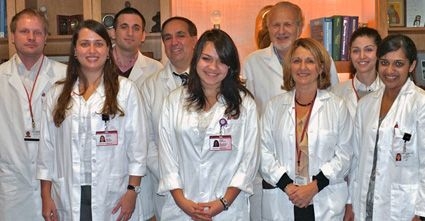- Weill Cornell Medicine’s Immunology and Infectious Diseases Unit within the Obstetrics and Gynecology at Weill Cornell Medicine is under the direction of Steven S. Witkin, Ph.D., and is at the forefront of research in several areas of women's health, especially: genetic, immune and infectious aspects of disorders affecting pregnant and non-pregnant women. Our Immunology and Infectious Diseases laboratory has an international reputation for research in obstetrics, genital tract infectious diseases and vulvar vestibulitis syndrome, and has generated hundreds of publications.
- Dr. Witkin has trained many international obstetricians and gynecologists in Europe, Asia and South America who then return to their home countries and become research and clinical leaders at their respective institutions. The Unit has had visiting fellows from Brazil, Latvia, Israel, Armenia and Turkey. In addition, Maternal-Fetal Medicine and Reproductive Endocrine fellows and Obstetrics and Gynecology residents routinely participate in the translational research underway, with a goal of applying research learnings to improvement in women’s healthcare.

- Our clinical laboratory has established highly sensitive, culture independent, gene amplification assays to detect mycoplasmas as well as chlamydia trachomatis and neisseria gonorrhea in biological samples and is one of the only laboratories licensed by The New York State Department of Health to perform these tests. The testing enables couples to evaluate whether the wife’s inability to become pregnant or to carry a pregnancy to term might be due to this infection in either partner. The laboratory is also licensed to perform analyses to determine a second cause of infertility, the presence in either partner of antibodies that react with spermatozoa and prevent it from reaching and fertilizing the egg, A third related test that we perform is the determination of sperm quality in the male ejaculate. The clinical lab is also licensed to test for polymorphisms, which are variations in the sequence of selected genes that increase the likelihood of having recurrent vaginal yeast infections or painful sexual intercourse (vulvodynia).



